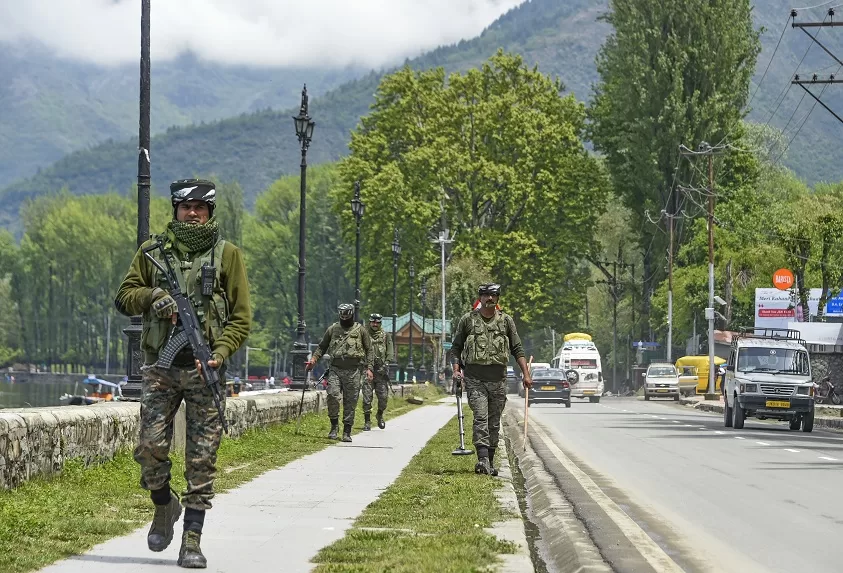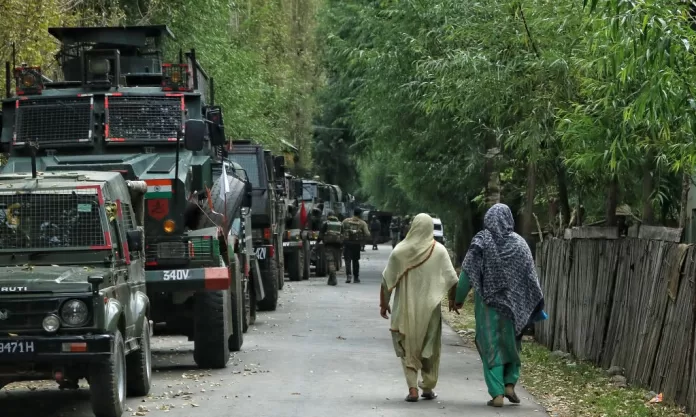Democratic freedom that India prides itself has been missing from the IHK since 1947. The voice of Kashmiris has always been portrayed as a threat to India’s territorial integrity rather than treating it as a whistle blower’s call to mend the ways. IHK has indeed been an open cage for the last six decades or so.
A United Nations (UN) Special Rapporteur has, yet once again, urged India to repeal the controversial law that gives its military special powers to act in troubled areas. Christof Heyns, UN’s Special Rapporteur on extrajudicial, summary or arbitrary executions, said that the Armed Forces (Special Powers) Act (AFSPA) has become a “symbol of excessive state power” and “has no role to play in a democracy”. These comments came after the conclusion of his 12-day fact-finding mission to India.
AFSPA has been in force in different parts of India since 1958 and is currently enforced in IHK, Manipur and Nagaland. Human rights workers have accused the Indian troops of illegally detaining, torturing and killing rebel suspects; sometimes even staging gun battles as a pretext to kill. Law also prohibits soldiers from being prosecuted for alleged rights violations unless granted express permission by the federal government. According to official documents, the IHK government sought permission to try soldiers in 50 cases in the last two decades, but the federal government has refused each request. Immunity provision effectively blocks any prosecution of members of the armed forces,” Heyns reported.
“During my visit to Kashmir, AFSPA was described to me as ‘hated’ and ‘draconian’. It clearly violates International Law. A number of UN treaty bodies have pronounced it to be in violation of International Law as well,” said Heyns. “The main finding in my report is that despite constitutional guarantees and robust human rights jurisprudence, extrajudicial killings continue in India and it is a matter of serious concern,” Heyns said. Guidelines laid down by the Supreme Court, many of which have been incorporated through amendments in the Code of Criminal procedure are not sufficiently complied with, he claimed. Prevalence of communal violence, encounter killings, custodial deaths, ‘honour’ killings and plight of dalits and adivasis are other areas of concern mentioned in the report. Heyns has proposed a number of provisional steps to be taken to address these concerns, including the establishment of a Commission of Inquiry, consisting of respected lawyers and other community leaders. “India also should ratify a number of international treaties, including the ‘Convention Against Torture’ and the International Convention for the Protection of All persons from Enforced Disappearance,” he said. Special Rapporteur’s final conclusions and recommendations will be submitted as a comprehensive report to the Human Rights Council. Earlier on also, the UN Human Rights Council’s Special Rapporteurs have demanded investigations to trace thousands of missing persons in held Kashmir and account for the mass graves of 2,700 Kashmiris.

Moreover, ‘Amnesty International’ has urged India to scrap the Public Safety Act (PSA) that allows police to detain a person up to two years without charge or trial if he or she is deemed a threat to the state. “Kashmir authorities are using PSA detentions as a revolving door to keep people they can’t or won’t convict through proper legal channels locked up and out of the way,” said Sam Zarifi, Amnesty’s Asia-Pacific director. A new report from the group said up to 20,000 people had been held under the law since the start of an insurgency in 1989. Indian authorities detained hundreds of people each year without charge or trial in order to “keep them out of circulation”, it said. According to an official count, 47,000 people have died in over two decades of rebellion. Amnesty’s recent report has called for “an independent, impartial and comprehensive investigation” into reports of torture and ill-treatment of detainees.
In January, UN special rapporteur on human rights defenders, Margaret Sekaggya, also demanded a repeal of the draconian laws. India’s rights record in Kashmir also came under scrutiny in December 2011, when leaked diplomatic cables said the International Committee of the Red Cross (ICRC) had evidence of systematic torture by Indian security forces. The ICRC, according to the cables leaked by Wikileaks, told US diplomats in 2005 of 177 visits it had made to Kashmir detention centres that revealed “stable trend lines” of prisoner abuses.
Stanley Wolpert. in his book “India and Pakistan” writes: “The people of Kashmir themselves must be permitted to choose their own leaders in free and fair elections, as do Indians in every other states in that union, and New Delhi solemnly commit to supporting Kashmir’s provincial autonomy and rights of its people, as it does the autonomy and rights of the people of Punjab, Maharashtra or West Bengal”.
UN is squarely to be blamed for the miseries of the people of IHK because it has not implemented its resolutions for holding a plebiscite in Kashmir to ascertain the aspirations of the people of the state. Pakistan did support the Kashmiris at various stages in varying degrees to wrest their freedom from India. Pakistan’s support may have been inefficient, it was not illegal. In the post-colonial period, international law has evolved through several UN instruments and articulations on decolonization which make it legal to support, even militarily, the struggle of peoples under colonial or foreign occupation, while they struggle for their right of self-determination.
Pakistan indeed lost several strategic opportunities for securing Kashmiri rights and freedom. Effort by Pakistan to evolve a bilateral solution through ‘back-channel’ diplomacy was a strategic fiasco. Such ‘solution’ would have legitimized the status quo and forsaken the rights of the Kashmiris for good.
Pakistan should continue to publicly express and uphold its longstanding and legitimate position on Kashmir that a final settlement must be based on the resolutions of the UN Security Council, agreed by and, hence, binding upon Pakistan and India. Pakistan’s articulations must be bold and recurring.
As settlement of Kashmir dispute is likely to take indefinite time, therefore without prejudice to the final settlement, Pakistan needs to work out a provisional mechanism to ensure representation of the people of AJK and Gilgit-Baltistan in the National assembly and Senate.
Here, an appeal is in order to the collective conscience of the American people that before casting their votes in the upcoming presidential elections, they must scrutinize President Obama’s actions towards fulfilling his Kashmir related pledges during his previous campaign. Moreover, an urging is due to the American Senators and Representatives to take notice of the Human Rights abuses in Kashmir and hold a hearing on this pressing issue. Sanity demands that Representative Dana Tyrone Rohrabacher should focuses on HR situation in Kashmir which is a UN recognized conflict, instead of wasting his breath in pressurizing Pakistan via Baluchistan.




